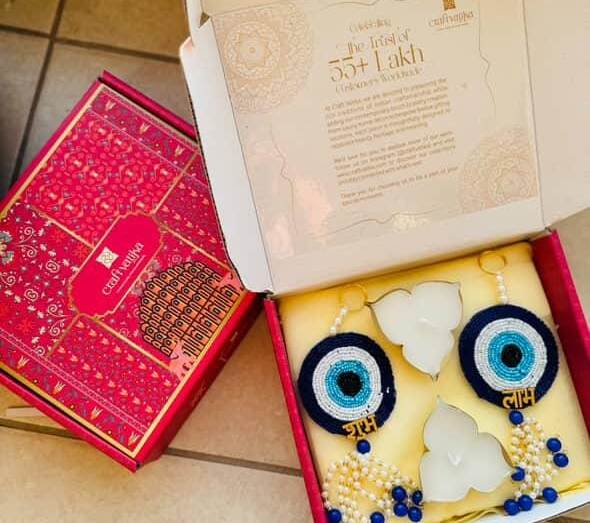Diwali, popularly known as the Festival of Lights, is one of the most celebrated festivals in India. While its essence remains the same—victory of light over darkness and good over evil—the way it is celebrated varies from region to region. Each state adds its unique cultural flavor, rituals, and traditions, making Diwali not just a festival, but a grand mosaic of India’s diversity. Exploring Diwali celebrations across India is like taking a journey through different worlds, all united by the glow of diyas and the warmth of festivities.
Northern India: Celebrating the Return of Lord Rama
In the northern states of Uttar Pradesh, Bihar, and Madhya Pradesh, Diwali commemorates Lord Rama’s return to Ayodhya after his victory over Ravana. Homes, temples, and streets are illuminated with rows of earthen diyas, symbolizing the people’s joy in welcoming their king back. Ram Leela, the dramatic retelling of the Ramayana, is performed in villages and towns, culminating in the burning of effigies of Ravana, Meghnath, and Kumbhakarna.
Lakshmi Puja is performed with devotion, and markets bustle with shoppers buying Diwali decoration items like torans, idols, and lanterns. Families exchange sweets such as laddoos, barfis, and gujiyas. Firecrackers light up the skies, adding to the celebratory mood.
Western India: A Festival of Business and Prosperity
In Gujarat, Diwali holds special significance for the business community. The festival marks the beginning of a new financial year, and shopkeepers and traders perform Chopda Pujan, where business ledgers are worshipped. It is believed that invoking Goddess Lakshmi on this day brings prosperity in the year ahead.
Rajasthan, with its vibrant culture, adds grandeur to the celebration. Homes are decorated with colorful rangolis, and fairs are organized where people buy handicrafts, jewelry, and festive items. In Maharashtra, Diwali spans five days, beginning with Vasu Baras and ending with Bhai Dooj. Families prepare traditional snacks like chakli, karanji, and anarsa to mark the occasion.
Southern India: A Festival Rooted in Mythology
Southern India celebrates Diwali with unique myths and customs. In Tamil Nadu, the festival is called Deepavali and is associated with Lord Krishna’s victory over the demon Narakasura. The celebrations begin early in the morning with oil baths, new clothes, and bursting firecrackers. Families prepare sweets like adhirasam and murukku, adding to the festive cheer.
In Karnataka and Andhra Pradesh, the festival is also linked with the slaying of Narakasura. Oil lamps are lit, and prayers are offered to Goddess Lakshmi and Lord Vishnu. Kerala, however, celebrates Diwali on a smaller scale compared to other states, focusing mainly on lighting lamps and performing pujas.
Eastern India: The Grandeur of Kali Puja
In West Bengal, Odisha, and Assam, Diwali coincides with Kali Puja, where Goddess Kali is worshipped with grandeur. Elaborate idols of the goddess are installed in beautifully decorated pandals, and rituals continue throughout the night. Kolkata, in particular, becomes a city of lights with pandals glowing in artistic themes.
Odisha celebrates Diwali with a unique tradition called Kaunriya Kathi, where jute sticks are burnt to invoke ancestors and seek blessings. Assam, too, lights lamps in homes and temples, with special prayers offered to Goddess Lakshmi.
Common Threads Across India
Despite these regional differences, some elements remain universal in Diwali celebrations across India. Lighting diyas and lamps, decorating homes with rangolis, exchanging sweets, and worshipping Goddess Lakshmi are common practices. Firecrackers, though celebrated differently, are an integral part of the festivities. Families come together, share meals, and strengthen bonds, reminding everyone that Diwali is not just about rituals but also about togetherness.
Craftvatika – Bringing Traditions Together
What makes Diwali special is its diversity, and platforms like Craftvatika.com celebrate this by offering a wide range of Diwali products suitable for every tradition. Whether it’s brass idols of Lakshmi and Ganesha for North India, decorative torans for Gujarat, or artistic wall hangings for Bengal’s Kali Puja, Craftvatika ensures that every household finds something meaningful for their celebrations.
The site’s collection of handcrafted Diwali decoration items, puja essentials, and gift hampers captures the essence of the festival. By choosing such products, families can stay connected to their cultural roots while adding beauty to their celebrations.
Conclusion
Diwali is more than just a festival—it is a reflection of India’s cultural richness. From Ram Leela in Ayodhya to Kali Puja in Bengal, from Chopda Pujan in Gujarat to Deepavali in Tamil Nadu, each region contributes a unique flavor to the celebration. Yet, beneath all this diversity lies the same message: the triumph of light over darkness, knowledge over ignorance, and good over evil.
By embracing these traditions and enhancing them with authentic Diwali decoration items and gifts from platforms like Craftvatika.com, families can make their celebrations even more memorable. Diwali across India is a reminder that while customs may differ, the joy of togetherness and the spirit of festivity unite us all.


Share:
Thoughtful Diwali Gift Hampers – A Gesture of Love and Festivity
Modern Diwali – Blending Tradition with Contemporary Lifestyle